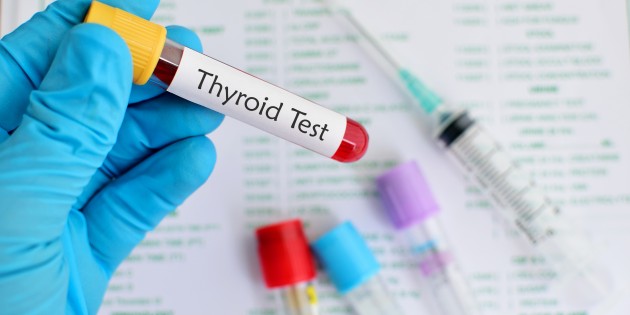
Types of Thyroid Disorders
16-06-2017 | Posted By: Chhavi | 2031 View(s)
What is a Thyroid Gland?
The thyroid is a small, butterfly-shaped gland located in the lower front part of the neck just below Adam’s apple.
The primary function of the thyroid gland is to regulate the metabolism of most of the body organs. It produces two major hormones, i.e. Triiodothyronine (T3) and thyroxine (T4) which stimulate the body’s cells to produce new proteins and increase the amount of oxygen that our body uses. The thyroid gland controls the release of these hormones by determining the metabolic rate of the body organs.
What are the Types of Thyroid Disorders?
Thyroid disorders refer to conditions that affect the function of the thyroid gland, a small butterfly-shaped gland located in the front of your neck. The thyroid gland produces hormones that regulate various bodily functions, including metabolism. There are several types of thyroid disorders, including:
1.Hypothyroidism:
This occurs when the thyroid gland doesn’t produce enough thyroid hormones. Common causes include autoimmune diseases like Hashimoto’s thyroiditis, surgical removal of the thyroid, radiation therapy, or certain medications. Symptoms may include fatigue, weight gain, cold intolerance, and depression.
2.Hyperthyroidism:
This is the opposite of hypothyroidism, where the thyroid gland produces an excess of thyroid hormones. Common causes include Graves’ disease (an autoimmune disorder), toxic nodular goiter, or thyroiditis. Symptoms can include weight loss, rapid heart rate, anxiety, and irritability.
3.Goiter:
A goiter is an enlargement of the thyroid gland. It can be caused by various factors, including iodine deficiency, autoimmune diseases, or certain medications.
4.Thyroiditis:
This refers to inflammation of the thyroid gland. There are different types, including Hashimoto’s thyroiditis (an autoimmune condition that leads to hypothyroidism) and subacute thyroiditis (often due to a viral infection and may cause temporary hyperthyroidism followed by hypothyroidism).
5.Thyroid Cancer:
This is relatively rare but can occur. There are different types of thyroid cancer, including papillary, follicular, medullary, and anaplastic thyroid cancer. Treatment and prognosis depend on the type and stage of the cancer.
6.Thyroid Nodules:
These are lumps or growths that form within the thyroid gland. They can be benign (non-cancerous) or malignant (cancerous). Most nodules are benign, but further evaluation is often necessary to determine their nature.
7.Congenital Hypothyroidism:
This is a condition where a baby is born with an underactive thyroid gland. If not detected and treated promptly, it can lead to developmental delays.
8.Postpartum Thyroiditis:
This is a temporary form of thyroiditis that can occur after childbirth. It may lead to a period of hyperthyroidism followed by hypothyroidism.
9.Graves’ Ophthalmopathy:
This is an autoimmune condition associated with hyperthyroidism (often due to Graves’ disease) where the tissues around the eyes become inflamed and swollen, leading to eye problems.
10.Graves’ Dermopathy (Pretibial Myxedema):
This is a rare condition associated with Graves’ disease where the skin on the shins becomes thickened, red, and lumpy.
What is the Thyroid Function Test?
Thyroid Function Tests are a range of blood tests used to measure how efficiently the thyroid gland is working.
Thyroid Function Test is used to monitor the functioning of the thyroid gland, understand the cause of Hypothyroidism, detect inherited thyroid problems in newborn babies and monitor the functioning and efficiency of the thyroid gland in those who are getting treated for Hyperthyroidism.
It’s important to note that some thyroid disorders, like Hashimoto’s thyroiditis and Graves’ disease, are autoimmune in nature, meaning they involve the body’s immune system attacking the thyroid gland.
If you suspect you have a thyroid disorder, or if you’ve been diagnosed with one, it’s important to seek medical advice and treatment from a healthcare professional. They can provide proper diagnosis and management based on your specific condition.



